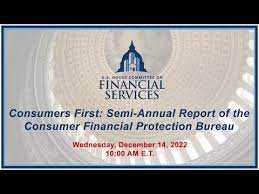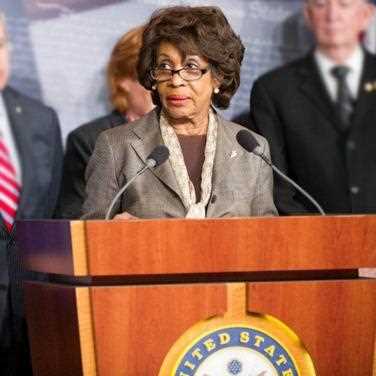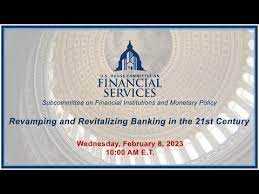U.S. House Financial Services Committee Overview

The U.S. House Financial Services Committee is a key congressional committee responsible for overseeing the nation’s financial services industry. It plays a crucial role in shaping financial policy and regulation, as well as conducting oversight of financial institutions and markets.
Committee Composition
The committee is composed of members of the U.S. House of Representatives who are appointed by the Speaker of the House. It consists of both Democrats and Republicans, with the majority party holding the most seats and the committee chairmanship.
The committee is divided into several subcommittees, each focusing on specific areas of financial services, such as banking, housing, insurance, and capital markets. These subcommittees allow for more specialized oversight and legislation within the broader scope of the committee’s responsibilities.
Key Responsibilities
The U.S. House Financial Services Committee has a wide range of responsibilities, including:
2. Consumer Protection: The committee works to protect consumers from abusive practices and ensure fair access to financial products and services. It oversees issues related to consumer lending, credit reporting, and financial literacy.
5. Capital Markets: The committee has jurisdiction over the regulation of capital markets, including stock exchanges, securities offerings, and investment advisers. It works to ensure fair and efficient markets that facilitate capital formation and protect investors.
6. International Financial Policy: The committee plays a role in shaping U.S. policy on international financial issues, such as trade agreements, sanctions, and global financial stability. It works to promote U.S. interests and protect against financial risks from abroad.
7. Economic Growth and Job Creation: The committee’s policies and oversight efforts aim to promote economic growth and job creation. It focuses on issues such as small business lending, access to capital, and financial innovation.
Overall, the U.S. House Financial Services Committee plays a critical role in shaping financial policy and ensuring the stability and fairness of the nation’s financial system. Its oversight and legislative efforts have a direct impact on consumers, businesses, and the overall economy.
Key Roles and Responsibilities
The U.S. House Financial Services Committee plays a crucial role in shaping and overseeing financial policy in the United States. As one of the most influential committees in Congress, its key roles and responsibilities include:
Oversight of Financial Institutions: The committee is responsible for overseeing the activities of financial institutions, including banks, credit unions, and insurance companies. It monitors their compliance with regulations and ensures the stability and integrity of the financial system.
Consumer Protection: One of the committee’s primary responsibilities is to protect consumers from unfair and deceptive practices in the financial sector. It conducts investigations, holds hearings, and develops regulations to safeguard consumers’ interests and promote transparency in financial transactions.
Capital Markets: The committee oversees the functioning of capital markets, including stock exchanges, securities trading, and investment activities. It works to ensure fair and efficient markets, promote investor confidence, and prevent market manipulation and fraud.
Housing and Urban Development: The committee addresses issues related to housing finance, affordable housing, and urban development. It develops policies and legislation to promote access to affordable housing, support homeownership, and revitalize communities.
Economic Stabilization: In times of economic crisis or instability, the committee plays a crucial role in formulating and implementing measures to stabilize the economy. It works closely with other government agencies and stakeholders to address financial challenges and promote economic growth.
Committee Hearings and Investigations: The committee conducts hearings and investigations on various financial issues, inviting experts, industry representatives, and government officials to testify. These hearings provide a platform for discussing key financial matters, gathering information, and shaping policy decisions.
Overall, the U.S. House Financial Services Committee plays a vital role in ensuring the stability, integrity, and fairness of the U.S. financial system. Through its oversight, legislation, and consumer protection efforts, it strives to promote a healthy and prosperous economy for all Americans.
Government and Policy
The U.S. House Financial Services Committee plays a crucial role in shaping government policies related to the financial sector. As a key committee in the House of Representatives, it is responsible for overseeing and regulating various aspects of the financial industry, including banking, securities, insurance, and housing.
Legislative Oversight


Consumer Protection
The committee conducts investigations and hearings to identify and address any fraudulent or abusive practices in the financial industry. It also works to promote financial literacy and education, empowering consumers to make informed decisions about their finances. Through its efforts, the committee strives to create a more equitable and inclusive financial system that benefits individuals and families across the country.
Overall, the U.S. House Financial Services Committee plays a vital role in shaping government policies and regulations that govern the financial sector. Through its legislative oversight and consumer protection responsibilities, it works to ensure the stability, fairness, and accessibility of the financial system, while also promoting economic growth and protecting the interests of American consumers.
Government and Policy
The U.S. House Financial Services Committee plays a crucial role in shaping government policies related to the financial sector. As a key legislative body, it is responsible for overseeing the implementation and enforcement of laws and regulations that govern various aspects of the financial industry.
Legislative Oversight
One of the primary responsibilities of the committee is to provide legislative oversight of financial institutions, including banks, credit unions, and insurance companies. It reviews proposed legislation, conducts hearings, and holds meetings to gather information and assess the impact of potential policies on the economy and consumers.
Policy Development
The committee plays a crucial role in the development of financial policies. It conducts in-depth research and analysis to identify emerging trends and challenges in the financial sector. Based on this research, the committee formulates policy recommendations and proposes legislation to address these issues.
Through its policy development efforts, the committee aims to promote financial stability, protect consumers, and foster economic growth. It works closely with other congressional committees, industry stakeholders, and experts to ensure that its policies are well-informed and balanced.
Oversight of Government Agencies
In addition to its legislative and policy development roles, the committee also exercises oversight over various government agencies involved in the financial sector. It conducts regular hearings and investigations to assess the performance and effectiveness of these agencies in carrying out their missions.
The committee holds agency officials accountable for their actions and decisions, ensuring transparency and accountability in the financial regulatory process. It also works to identify areas where regulatory reforms may be necessary to improve the efficiency and effectiveness of these agencies.
Overall, the U.S. House Financial Services Committee plays a critical role in shaping government policies related to the financial sector. Through its legislative oversight, policy development, and oversight of government agencies, the committee works to ensure the stability, integrity, and fairness of the financial system.

Emily Bibb simplifies finance through bestselling books and articles, bridging complex concepts for everyday understanding. Engaging audiences via social media, she shares insights for financial success. Active in seminars and philanthropy, Bibb aims to create a more financially informed society, driven by her passion for empowering others.
